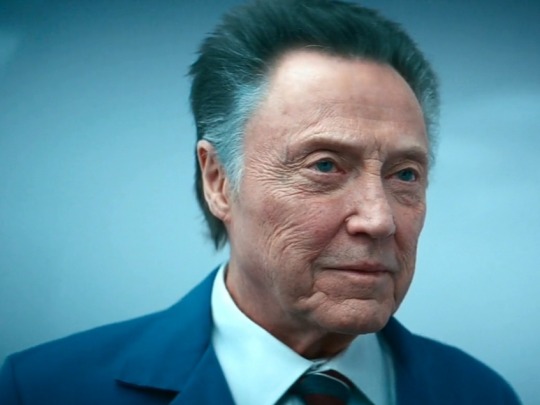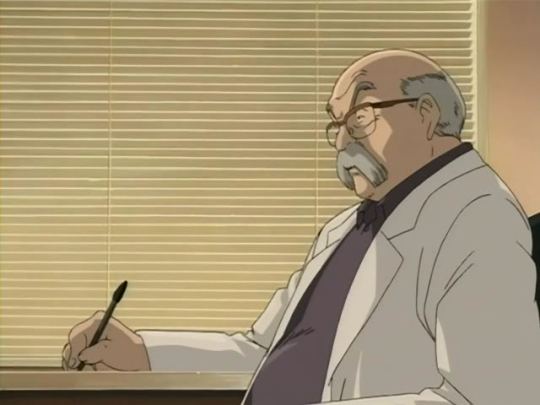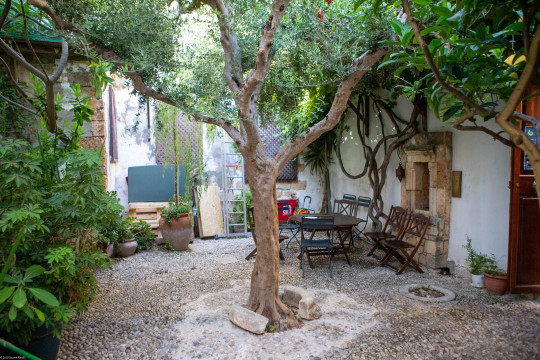#ashkenaz
Text

TUISCO, who Moses called Ashkenaz, was the son of Gomer, the firstborn son of Japheth. He gave rise to the Sarmatians, who live next to Poland, and are now counted among the Germans; he taught them writing, and designed their laws. He gave the German Kingdom its beginning in the 1909th year of the world and the 2053rd year before the birth of Christ. He reigned for 150 years, died, and was taken up among the gods. From Gomer come the Cimbri, who, fleeing from Italy, dwelt in Dacia and the places in the North which we commonly call Denmark. See Berossus book 5.tu
#tuisco#ashkenaz#prima pars#germanic myth#biblical figures#rulers#national founders#berossus#pseudo berossus#annius of viterbo
6 notes
·
View notes
Text

Babylonian Talmudic practitioners
2 notes
·
View notes
Text
I love the Jewish cooking experience because our recipes are split 50/50 between “so delicious and emotionally fulfilling I might cry” and “we lost our bubbe’s recipe box and all the salt 3 pogroms ago and we’ve never recovered”
#there are noodle kugels I would commit felonies for and there are noodle kugels that are doing felonies to my tastebuds#and then there’s the midcentury kugel crimes don’t even get me started#and that’s just the Ashkenazic casseroles#jumblr#if jew know jew know#Jewish food#cooking#Jewish cooking#Jewish history
126 notes
·
View notes
Text
Saw a take that said the prominent use of Yiddish in antizionist spaces was “appropriative.” Which, yknow, is something you only say when you think the people using it aren’t really Jews, but aside from that…
Yeah, why would a language and culture made from diasporic life that is a testament to how “living elsewhere doesn’t mean total assimilation” would be popular among folks who don’t believe our safety and existence lies solely with Israel’s existence? Real fuckin headscratcher…
#setting aside yknow Hasidic groups that are antizionist by default#and forgetting how many European Jews were antizionist before and after WW2#forgetting how many prominent antizionist Jews are Ashkenazic that are antizionist BECAUSE of ww2#forgetting that Yiddish was initially banned in Israel and Holocaust survivors were seen as weak cowards by Israelis#think with your head for a moment why the possibility of having culture and language and identity in places other than Israel might#POSSIBLY be a beacon to people who are being told without Israel you have no future#not making any connections??? no???
29 notes
·
View notes
Text
i wanted to post this for rosh hashanah but i forgot and i'm lazy. however, i hope that my favorite fictional "old jewish men" had a nice new year 🍯🍎🍏. (they are all canonically jewish, trust me this is 100% real haha don't look them up to verify, just believe me.)






also i can only remember these ones... are they my six (seven if you count runge/lunge from monster but he's not celebrating rosh hashanah, or anything, so i don't put him on this post) OJMs characters i can think of ? probably not but i've really searched a lot inside my brain and i can't really think of others... maybe i'll do a second post because i know i forgot some..
#john turturro is algerian jewish btw (don't look up the early life section of his wikipedia page just choose to believe me without question)#irving and burt are actually sephardic/ashkenaze solidarity#frank vernon is literally played by an old jewish man he's the most legit of them i'm crying#also mr rosso monster and dr julius r/leichwein monster jewish because i said so (i want them as paternal figures)#i should add runge from monster too but that man is jewish but the most secular man you could find. like SECULAR.#also kinda crackship but i kinda ship leichwein and rosso because it would be “old jewish man yaoi” and i love both terms so much#like whoever coined the terms old man/woman yaoi/yuri did an incredible association of words to me. modern times poetry.#also milan from that one episode of monster but i'm still grieving him. (czech jewish trust me (with some romani vibes if you ask me) !!)#irving bailiff#burt goodman#frank vernon#mr rosso monster#julius reichwein#julius leichwein#severance#succession#naoki urasawa's monster#monster#john turturro#christopher walken#peter friedman#edit before the posting but i already wrote all the tags :#oliver putnam#martin short#only murders in the building#omitb
8 notes
·
View notes
Note
As a Jewish person, could you tell Fossil to take a hike? Nobody believes her over the (most likely false) Nazi claims and she won’t shut the fuck up about it, but nobody will put Fossil in her place for once. Thank you :) You did not deserve to get brought into the situation but Fossil is wreaking havoc on this “community” and it’s only right for someone to get her off of her pedestal. Fossil doesn’t belong here.
Alright I guess I'm being dragged into this conversation. Again, I only didn't get involved because I had no idea what they were talking about (I wasn't even in highschool yet when this happened). And I thought "omigod there's no way" so I sent the screenshot to Lysa and posted about it.
She posted her own screenshots. you realize that Lysa isn't even denying the claims, right? Your gaslighting doesn't work when the screens are there:

So.
Fossil belongs here. They've clearly spoken out against racism and antisemitism and asked that Lysa be held accountable. That's a good thing and should be what we all do.
Thank you, Fossil for speaking out against bigotry and antisemitism. As a Jew, I see you and I appreciate you. 💙
I do believe people are capable of change but they need to be held accountable for their actions in order to do that. I also want to be fair and mention that I appreciate Lysa's maturity in not denying or lying about what happened. I don't think I trust Lysa. I'm only saying that people are able to change their beliefs and that holding someone accountable includes holding someone accountable to changing. (Changing doesnt mean continuing to welcome her in our community). I think her leaving is for the better. Fuck nazis.
I think I'm going to take a step back further from this community. One of the reasons I stayed was because of our united front against bigotry- but yet again I'm reminded that Jews aren't actually welcomed in leftist circles. sigh.
Do better.
(Side note, we just call ourselves "Jews" usually. Noone just says "as a Muslim person" lmao. There are literally like 3 other Jews on this site too and it doesn't seem in character to defend nazi art from someone who was old enough to rent a car at the time. Not calling you, anon, a liar but saying that I'm doubtful)
EDIT: totally misread the statement "As a Jewish" and thought anon was telling me they were a Jewish person. lmao
#mweor#i didnt say fuck you in this post but i really wanted to#side note ive always been an ashkenaz jew but recently as of this past year or so ive been attending synagogue and learning hebrew#and ive cut ties with xianity (the religion i was raised in by my adopted family)#haven't posted about this because xians are yikes.#and im followed by some xian friends who would snitch to my family and try to intervene#if you see me make edits to posts like these its because i suck at grammar and explaining myself
4 notes
·
View notes
Note
🍓
⎯ ✖ ♡ send me a 🍓 and ill compliment u! ( accepting )

you are my favorite sag. you have amazing taste. and you always spit facts. love you b.
2 notes
·
View notes
Text
would be cute to see someone other than fellow jews talking about the fact that highland park, a place where a fuckton of my family and family friends and hillel friends grew up, is a massively jewish suburb shot up by a trumpie.
#yeah i'm already bitching about this on discord but. why does NOBODY TALK ABOUT ANTISEMITISM#ig it's possible the shooter was a jewish conservative but. i'd be surprised#and either way. either way#.#at least one of the victims went to a synagogue my singing group sang at.#edit the shooting suspect's father as interviewed is a junior so. def not ashkenaz.
4 notes
·
View notes
Text
to sew. a short story.
Chapter 1
Things always come back to me. The way I walk, what I do, what I think, my ways of being. No thought of mine goes undiscovered.
Maybe I'm moral out of shame; if every thought, action, gists discovery, then I have to be a good person. (Gyiest.)
I first thought of this picking up trash that was littered in my neighborhood. (Gyst.)
I'm acutely aware of being judged, and watched, all the time. (Gyist.)
Doing what makes you happy is what is at stake: maybe I secretely enjoy vast iniquity, I just am watched and waytched as such. (Stake.)
But yeah, it's funny and obscene to watch my ways go slowly to those who consume me. The astral is soe(w). My gibs, downloaded from me to womb, my birthrite ahened and my child {go[i]es). Into the atmosphere. Goiest.
My ways of being, my personality and mannerisms, go. Goeist. To who or whom I don't know or gro(e). Disseminated the foyirm, into others who live their lives fro. As if they've always had it and conceived it themsoe.
I say and realize this was myne, and they take back a hammer tosou. God disseminating little pieces tofroe.
Tofrou goes my comedy, and I go tosou(ew). My plants get wilted, and I go ensoe. They laugh, I cry, in my ov it is so.
Chapter 2
Maybe when my mom dies, it will go, the reap. She reaps me and sells my oh-so-profitable experience like it's nought ov. (Sea.) She reaps our suffering, as in our experience of her ove. She yis, she can never be ys, like me, because she noughtein. Yein. Is. Be.
Chapter 3
Creategame hates crera.
0 notes
Text
le proteste di tel aviv viste da un palestinese
https://orientxxi.info/magazine/paura-nelle-colonie-le-proteste-di-tel-aviv-viste-da-un-palestinese,6340
una ricostruzione lucidissima delle due speculari forme di oppressione ai danni della Palestina: https://orientxxi.info/magazine/paura-nelle-colonie-le-proteste-di-tel-aviv-viste-da-un-palestinese,6340

View On WordPress
0 notes
Text
Rejecting claims Qatar is limiting kosher food, rabbi hails first-ever kosher kitchen in Doha
Rejecting claims Qatar is limiting kosher food, rabbi hails first-ever kosher kitchen in Doha
Outrage had followed reports that cooked kosher fare wasn’t being allowed, but the rabbi who negotiated with the Qataris said he had “never asked for hot food.”
By Batya Jerenberg, World Israel News
Dismissing earlier reports, both Israeli officials and rabbis on the ground in Qatar say that kosher food, albeit cold, is available for observant Jews during the ongoing World Cup soccer…

View On WordPress
0 notes
Text
I am posting and responding to this ask anonymously as I don't want anyone harassing its sender. This has already been communicated with the person who sent the ask.
I just want to thank you for being a light in the darkness of anti-semitism, especially on this website. I have found I am on this site a lot less ever since it was made clear that other leftists here are more anti-semitic than we ever knew possible, using very specific wording of our own trauma against us (i.e. saying stuff like "colonialism", "genocide/ethnic cleansing", and calling JEWISH PEOPLE Nazis).
It feels like, at best, they know Hamas ≠ All or even most Palestinians, but think that they think all JEWS = Bibi; and at worst, agree with Hamas and think of him as some sort of "freedom fighter".
So, thank you from one leftist Jew to another, just trying to keep afloat here. ❤️
You are very welcome; it's certainly been overwhelming, and I'm glad this can be a safe space for you.
I do want to push back on some of this ask, though. Specifically in regard to terms such as "colonialism," "apartheid," "genocide," and "ethnic cleansing."
The use of these terms is not inherently anti-Semitic. For a lot of people, these terms are the best ones they have access to describe what they are seeing. I do think such terms as “colonialism” and “apartheid” are overly simple in regard to the last ~3000 years of Jewish history, and that they cast the situation into an alien historical context which dilutes and uncomplicates the all the historical realities at stake, but I truly do not think that all who use these terms do so to cause Jewish people pain.
Further complicating the picture is that terms like "colonialism" aren’t completely wrong. Modern Zionism arose in the context of mid-nineteenth century European large-scale movements towards nationalism (ie, the creation of nation-states) and away from the multi-national empire. Jews—a subject of anti-Semitism and fifth columnist suspicions within those emergent European nations—reacted to all this by joining the nationalism game.
What’s ironic, is that those European Jews who founded contemporary Zionism were reacting to the exclusion and racial hatred with which Gentile Europeans treated them, and then once they had some settlements in Palestine, they deployed similar variants of racial hatred at both the Palestinian Arab population, and Middle Eastern Jewry.
The existence of a distinct people and ethnic group in Palestine before the aliyot were not something the first generation of Zionists were concerned with. Because they were part of the same shitty, white supremacist, pro-imperialistic intellectual European tradition to which they were responding as victimized parties. As time went on and Zionist thought spread across Ashkenazic communities, we can see some variants. Some forms of far-left Zionism in twentieth century Poland, for example, actively built the presence and rights of Palestinian Arabs into their ideology, some of them actively stating that Zionism could not be a success if it necessitated transforming Palestinian Arabs into a group of secondhand citizens and a cheap source of labor in their own home.
Those leftist strands of Zionism tended to be Socialist/Communist in nature, and centered around the idea of life in Eretz Yisrael as one of a series of self-sufficient communes. Thus when the 1930s hit and things start to go bad, the Zionists we see fleeing to Palestine tended to be of the more centrist and far right variants. The left wing, socialist movements, already operating as a collective, had a membership uncomfortable with fleeing to safety while the rest remained behind.
And that same socialist/communal attitude, is why those variants of Zionist thought never made it into the Israeli political mainstream; most of their members and proponents were murdered in the Holocaust in part because they refused to leave their comrades behind. The General Zionists and Zionist Revisionists who rode out the years of the Holocaust in Palestine therefore already had access to the avenues of power which would become important in 1948, when the British Empire shrugged off its responsibilities towards the regions it colonized and destabilized.
Now, as for ethnic cleansing. I can’t sugar-coat this: that’s what the Naqba was. It was ethnic cleansing of Palestinian Arabs from their homes to make way for the Jewish State. The manipulative shit (but still somehow extremely prestigious) youth group I was in taught us that Arabs call it Naqba because they hate Jews and therefore existence of Jews in the Southern Levant was a tragedy, as was the fact that Hitler didn't finish the job.
That’s garbage: it’s called the Naqba because it was ethnic cleansing. And that's not the fault of the Holocaust survivors who made their way to Mandatory Palestine/Israel in the late 1940s--they lacked political power, and were often looked down upon by those who did; the Holocaust as part of Israeli National Mythology wasn't an immediate Thing.
If you spent your formative years around older Jewish folks of A Certain Generation, whose trauma has pretty much placed a permanent block on their ability to see some of what went down in 1948 for what it was, I can’t blame you for having that gut/cognitive dissonance reaction to the use of “ethnic cleansing” in the context of Israel and Palestine. I know those older folks. I loved them. They’re mostly gone now, and I miss them terribly. But their trauma-induced view of everything lives on in the ability of some younger Jews to properly name and understand what it is that happened in 1948.
It was ethnic cleansing.
Further, not only were Palestinian Arabs ethnically cleansed, but the Middle Eastern and North African (MENA) Jews who were forced by their governments to flee their homes of thousands of years and seek refuge in Israel throughout the second half of the twentieth century…the Western and Central European Jews in control of Israel and its institutions treated them like shit too. Hadassah actively stole the babies of Yemeni Jews, told the parents that their children were dead, and rehomed them to Ashkenazic couples. There were death certificates. Members of the Ethiopian Jewish community were forcibly sterilized, and their ongoing treatment by the State is racist and generally atrocious. And this analysis of the relationship between the Israel State, MENA Jewish populations, and different Ashkenazic groups in Israel is horribly short and overly simple.
As for genocide. I honestly don’t know. I do know many people, who are very much not Anti-Semites, who are calling what’s happening in Gaza right now genocide; many of these people are also Jewish. I know many others who refer to the experiences of Palestinians between 1948 and now as a slow genocide. Many of these people are also actively not anti-Semites, and many of them are Jewish.
So these terms, as uncomfortable as they may feel for people within the very specific Jewish generational background I believe we share, are not deployed as anti-Semitic weapons. Nazi comparisons? Yes. Swastikas superimposed over the Star of David? Yes. Very specific hook-nosed Jewish caricatures in relation to Israelis? Yes. Blood libel shit? Yes. These are all anti-Semitic, and are deployed to hurt and retraumatize Jewish people. But the rest are not nearly that simple.
And I didn’t learn this from like, Bad Evil Post-Modern Academics at Columbia University Who Hate Jews; I learned this from doing graduate-level work in the field of Modern Jewish History, and working in Jewish archives; this did not come from outside the building.
Now, as for Hamas as freedom fighters…that’s ignorant at best. Hamas’ charter clearly calls for the global destruction of the Jewish people [ETA: they edited this part out in 2017 for PR purposes], and their actions as rulers are horrifically, violently, homophobic, and seem to be more abut provoking Israel than they are about governing and protecting their people. But as you said, Hamas isn’t all Palestinians, and it’s also not all Palestinians who consider themselves freedom fighters. (A second reader of mine had the following commentary on this paragraph: "Might need a bit more complication around Hamas? I know that's not your area of expertise but it's worth mentioning that they were basically set up to undermine the PLO and what would become the Palestinian Authority in the West Bank. You're right that they aren't representative of all Palestinian thought and resistance, and that they are on some fuck shit.")
So while I’m so glad that blog is a comfort to you, I encourage you to also take a step into some of your discomfort, and ask yourself where it comes from.
No one reading this post has my consent to use it to silence other Jewish people who are in different stages of their journey towards understanding how generational trauma has impacted their ability to grasp all of this. Further, if you choose to attack me for gently calling my people in, you're a piece of shit and I will be mean to you.
898 notes
·
View notes
Text
I understand and agree with pointing out that the Holocaust didn’t just affect the Jews that lived in Europe, and shedding light on the stories of Jews in other territories under Axis control. Every life lost or uprooted in the Holocaust matters and deserves to be remembered, not just Ashkenazim.
However, I’ve been seeing a bit of an overcorrection to the point that this valid & important point get twisted by some into the idea that Ashkenazim weren’t actually all that affected by the Holocaust at all and may have actually been safer than other Jews due to being White/European*, and I wanted to walk through exactly why that is so far from the reality and gets into really dangerous Holocaust Distortion.
The fact is that the vast majority of Holocaust victims were Ashkenazim. How do we know this? Well, first and most obvious without even getting into the numbers: the Nazis were most active in Eastern Europe, where most Jews were overwhelmingly Ashkenazi. Germany had colonies elsewhere and the affect the Holocaust had on Jews living in Africa and Asia is not any less important (and the fact remains that their stories are a genuine gap in Holocaust education that needs to be filled), but this doesn’t change the fact that the center of Nazi activity was Europe, and thus that is where their impact on Jews was most intense. But it’s important to not just go off of what seems “obvious” because what’s obvious to any given person is subjective and subject to bias. So let’s look at the numbers:
Estimates prior to the Holocaust put Ashkenazim at 92% of the world’s Jewish population (or roughly 14 million of the 15.3 million total Jewish population), meaning that it would be physically impossible for less than 4.7 million (or 78%) of the 6 million Jews murdered in the Holocaust to be Ashkenazim.

Even that number is only possible to reach by assuming that only Ashkenazism survived and literally every non-Ashkenazi Jew died in the Holocaust, which we categorically know is not the case due to the continued existence of Sephardim & Mizrahim, as well as other Jews. So the number has to be higher than 78%.
Additionally, the fact that the proportion of the world’s Jewish population that was Ashkenazi fell so drastically during to the Holocaust and still hasn’t recovered (from 92% in 1930, only recovering to close to 75% in the last couple decades) means that not only a higher overall number of deaths were Ashkenazim, but that a higher proportion of the total Ashkenazi population died than from other groups.
We also know that 85% of Jews killed in the Holocaust were Yiddish-speakers. The fact that Yiddish is endemic to Ashkenazi culture (and not all Ashkenazim would have even been Yiddish-speakers) due to assimilation means that at least—and most likely more than—85% of Jews killed in the Holocaust were Ashkenazi.
So, no, Ashkenazim were not some privileged subcategory of Jews who avoided the worst of the Holocaust. They were the group most directly devastated by it.
That doesn’t change the fact that the devastation the Nazis and their allies wreaked on other Jews is every bit as important to acknowledge and discuss, and must not fall by the wayside. The stories and experiences of all victims & survivors deserve to be heard, remembered, and honored, not just the most common or most statistically representative of the majority of victims. However, we can (and must) do that without allowing the facts of the Holocaust to be distorted or suggesting Ashkenazim were somehow less affected by the Holocaust or more privileged under the Nazis. The Nazis hated all Jews. Antisemitism affects all Jews. Period.
*without getting too deep into how categories like Ashkanzi/Sephardi/etc. don’t map neatly onto race like so many people seem to want them to. that’s a different post, but just pointing that out
237 notes
·
View notes
Note
Hi! Not a Good Omens question:
In "The Ocean at the End of the Lane," there's a bit where the grandmother talks about how people "essen" while pigs "fressen." What I found interesting is that she uses the Yiddish word "Chazzer" (Khazer/חזיר) when talking about pigs. I was wondering if this pointed to the main character being of Ashkenazic descent.
Either way, as a Yiddish speaker, it was really exciting to see it :)
You'll find him talking about aunts calling him a little momzer at the beginning of Chapter 6 as well. And yes.
758 notes
·
View notes
Text
The family tree of humanity is much more interconnected than we tend to think. “We’re culturally bound and psychologically conditioned to not think about ancestry in very broad terms,” Rutherford says. Genealogists can only focus on one branch of a family tree at a time, making it easy to forget how many forebears each of us has.
Imagine counting all your ancestors as you trace your family tree back in time. In the nth generation before the present, your family tree has 2n slots: two for parents, four for grandparents, eight for great-grandparents, and so on. The number of slots grows exponentially. By the 33rd generation—about 800 to 1,000 years ago—you have more than eight billion of them. That is more than the number of people alive today, and it is certainly a much larger figure than the world population a millennium ago.
This seeming paradox has a simple resolution: “Branches of your family tree don’t consistently diverge,” Rutherford says. Instead “they begin to loop back into each other.” As a result, many of your ancestors occupy multiple slots in your family tree. For example, “your great-great-great-great-great-grandmother might have also been your great-great-great-great-aunt,” he explains.
The consequence of humanity being “incredibly inbred” is that we are all related much more closely than our intuition suggests, Rutherford says. Take, for instance, the last person from whom everyone on the planet today is descended. In 2004 mathematical modeling and computer simulations by a group of statisticians led by Douglas Rohde, then at the Massachusetts Institute of Technology, indicated that our most recent common ancestor probably lived no earlier than 1400 B.C. and possibly as recently as A.D. 55. In the time of Egypt’s Queen Nefertiti, someone from whom we are all descended was likely alive somewhere in the world.
Go back a bit further, and you reach a date when our family trees share not just one ancestor in common but every ancestor in common. At this date, called the genetic isopoint, the family trees of any two people on the earth now, no matter how distantly related they seem, trace back to the same set of individuals. “If you were alive at the genetic isopoint, then you are the ancestor of either everyone alive today or no one alive today,” Rutherford says. Humans left Africa and began dispersing throughout the world at least 120,000 years ago, but the genetic isopoint occurred much more recently—somewhere between 5300 and 2200 B.C., according to Rohde’s calculations.
At first glance, these dates may seem much too recent to account for long-isolated Indigenous communities in South America and elsewhere. But “genetic information spreads rapidly through generational time,” Rutherford explains. Beginning in 1492, “you begin to see the European genes flowing in every direction until our estimates are that there are no people in South America today who don’t have European ancestry.”
In fact, even more recent than the global genetic isopoint is the one for people with recent European ancestry. Researchers using genomic data place the latter date around A.D. 1000. So Christopher Lee’s royal lineage is unexceptional: because Charlemagne lived before the isopoint and has living descendants, everyone with European ancestry is directly descended from him. In a similar vein, nearly everyone with Jewish ancestry, whether Ashkenazic or Sephardic, has ancestors who were expelled from Spain beginning in 1492. “It’s a very nice example of a small world but looking to the past,” says Susanna Manrubia, a theoretical evolutionary biologist at the Spanish National Center for Biotechnology.
Not everyone of European ancestry carries genes passed down by Charlemagne, however. Nor does every Jew carry genes from their Sephardic ancestors expelled from Spain. People are more closely related genealogically than genetically for a simple mathematical reason: a given gene is passed down to a child by only one parent, not both. In a simple statistical model, Manrubia and her colleagues showed that the average number of generations separating two random present-day individuals from a common genealogical ancestor depends on the logarithm of the relevant population’s size. For large populations, this number is much smaller than the population size itself because the number of possible genealogical connections between individuals doubles with each preceding generation. By contrast, the average number of generations separating two random present-day individuals from a common genetic ancestor is linearly proportional to the population size because each gene can be traced through only one line of a person’s family tree. Although Manrubia’s model unrealistically assumed the population size did not change with time, the results still apply in the real world, she says.
Because of the random reshuffling of genes in each successive generation, some of your ancestors contribute disproportionately to your genome, while others contribute nothing at all. According to calculations by geneticist Graham Coop of the University of California, Davis, you carry genes from fewer than half of your forebears from 11 generations back. Still, all the genes present in today’s human population can be traced to the people alive at the genetic isopoint. “If you are interested in what your ancestors have contributed to the present time, you have to look at the population of all the people that coexist with you,” Manrubia says. “All of them carry the genes of your ancestors because we share the [same] ancestors.”
And because the genetic isopoint occurred so recently, Rutherford says, “in relation to race, it absolutely, categorically demolishes the idea of lineage purity.” No person has forebears from just one ethnic background or region of the world. And your genealogical connections to the entire globe mean that not too long ago your ancestors were involved in every event in world history.
2K notes
·
View notes
Text



etz hayyim (“tree of life”) synagogue in chania, crete, greece. the building dates to the 14th-15th centuries, and was originally a venetian catholic church. it was acquired by chania's jewish community and converted into a synagogue in the late 17th century. chania's jews were deported due to the holocaust in 1944, after which the building remained abandoned until restoration in the 1990s.
romaniote jews are the oldest jewish community in europe and one of the oldest in the world, thought to have lived in and around present day greece since before 70 ce. they have their own liturgy that is unrelated to the more commonly used european ones (ashkenazic and sephardic).
#greece#architecture#interior#worship#jewish#romaniote#old & new#my posts#for all u Westerners 'rom' = constantinople referring to itself as the roman empire#so rome/italy is like 'west roman' constantinople/greece/anatolia is like 'east roman'#in the west its called 'byzantine' from 'byzantium' (proto-constantinople)#also it insinuates w roman empire was the 'real' roman empire (despite east lasting 1000 years longer)#in most mediterranean & w asian languages greece/greek is 'yunan/yawan/yavan' (from ionians) or 'rum/rom' (from roman)#in actual greek it's 'hellas'/'ellas' (from hellenic)#in georgian it's 'saberdzneti' for some reason but they also have their own names for a bunch of places#'greece' comes from the latin name 'graecia'#in a lot of slavic languages it's some variation of 'greece'. weird considering most were never/hardly under latin influence#if you think this is a lot just wait until u hear about the all the names for armenia#but yeah these guys were also in a lot of the balkans. if you're from the balkans and jewish you MAY have romaniote ancestry#(at least more recent romaniote ancestry than all other european jews)#not a guarantee though especially if you're ashkenazi#theres like. other jewish groups in europe that predated ashkenazi migration#most of them just got absorbed into the ashkenazi population
229 notes
·
View notes